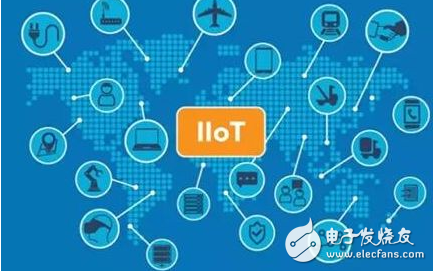Cambashi, a leading industry analysis firm based in Cambridge, UK, recently released a comprehensive report highlighting the key trends and innovations shaping the Industrial Internet of Things (IIoT). The report outlines how early IIoT applications were often custom projects rather than standardized solutions, requiring the support of system integrators or service providers to manage design and implementation. As IIoT continues to grow, industries are increasingly looking for their existing systems to seamlessly integrate with IoT capabilities—much like how traditional systems now support the internet.

According to the report, over 350 companies are actively developing industrial IoT platforms and components necessary for building applications. Most of these firms rely on partner ecosystems to deliver end-to-end solutions. These partners typically provide IoT devices, cloud storage and computing, edge computing, enterprise applications, and project management or system integration services.
Mark Benson, technical director at Exosite, notes that short-term trends are focusing on advanced analytics and integration services, with growing emphasis on device-to-cloud security. Mergers and acquisitions are expected to remain a key strategy for companies aiming to strengthen their IIoT offerings. In the long term, the integration of Augmented Reality (AR) and Industrial IoT PaaS (Platform as a Service) is anticipated to become standard tools for enterprises, similar to CRM and ERP systems.
For example, Oracle offers IoT applications such as asset monitoring, production tracking, fleet management, and online operations. In 2016, SoftBank subsidiary PS Solutions used Oracle’s IoT cloud service to launch a car and bike rental service called Setouchi Karen in Toshima, Japan. The IoT has the potential to transform businesses into fully automated, computerized entities. CNH Industrial, for instance, integrates smart networking products into its customer service, including performance monitoring and integration with core enterprise systems like CRM and ERP.
GE is also actively collaborating with other industry leaders. It has integrated its Predix operating system with SAP’s HANA cloud platform and works with IBM and Microsoft in cloud hosting and computing. Additionally, GE partners with PTC’s ThingWorx IoT platform on certain projects.
Siemens is working with Capgemini to use the MindSphere platform for cloud-based asset management and data analysis. It is also partnering with FPT, a Vietnamese IT service provider, to support digital transformation efforts across Asia-Pacific and Europe.
In 2016, GE acquired a machine learning company to enhance its cloud-based industrial IoT platform. Similarly, Microsoft acquired the IoT platform Solair in May of the same year. The report suggests that the IoT landscape will continue to expand rapidly in the coming years.
In May 2017, Google launched Cloud IoT Core, a service that allows enterprises to securely connect and manage IoT devices while aggregating and analyzing the data they generate. Cloud IoT Core partners include ARM, Intel, and Marvell, with third-party developers like Helium, Losant, and Tellmeplus also offering application development support.
Despite the growing adoption, IoT devices have also faced security challenges. For example, in 2016, the Mirai botnet attack disrupted major websites such as Amazon, Netflix, Twitter, Spotify, Airbnb, and PayPal.
However, the report suggests that future IIoT providers will prioritize security. Companies like Rachio use AWS IoT security features, while Rolls-Royce relies on Microsoft Azure for secure IoT operations.
Google’s IoT Core leverages Google Cloud Dataflow, Google BigQuery, and Google Cloud Machine Learning Engine to offer a unified infrastructure and service solution, enabling businesses to connect and centrally manage IoT devices effectively.
Overall, the Industrial Internet of Things is delivering real value across multiple industries, making it easier for companies to adopt and implement IoT solutions. While the next 5–10 years will likely see intense competition, who will emerge as the true leader in the IIoT space remains an exciting question to watch.
Low Frequency Inverter With Charge
Low Frequency Inverter With Charge,Low Frequency Hybrid Solar Inverter,Inverter With Mppt Charge,Hybrid Inverter With Mppt Charge
GuangZhou HanFong New Energy Technology Co. , Ltd. , https://www.gzinverter.com